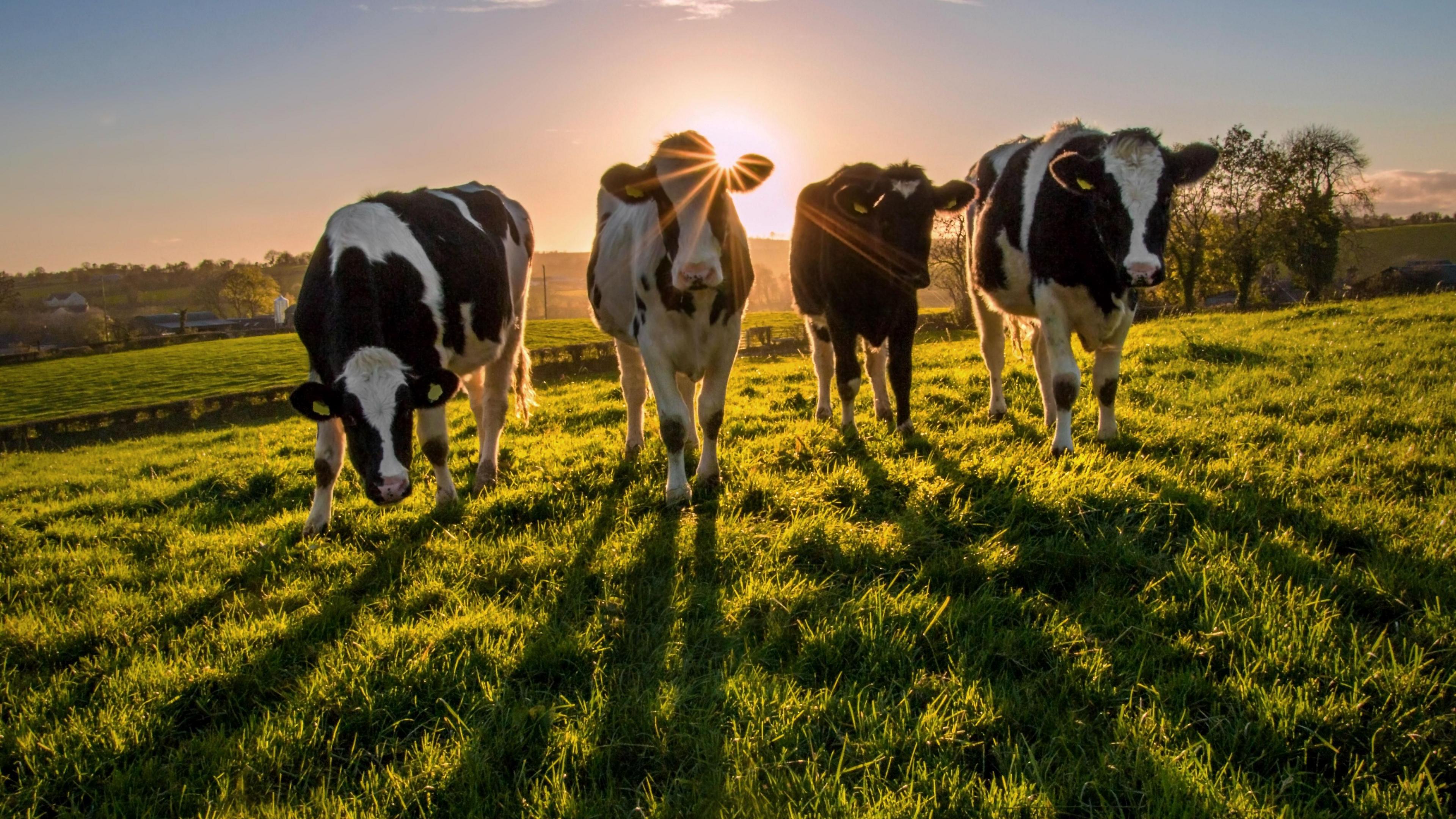'Tax changes will wipe out family farms'
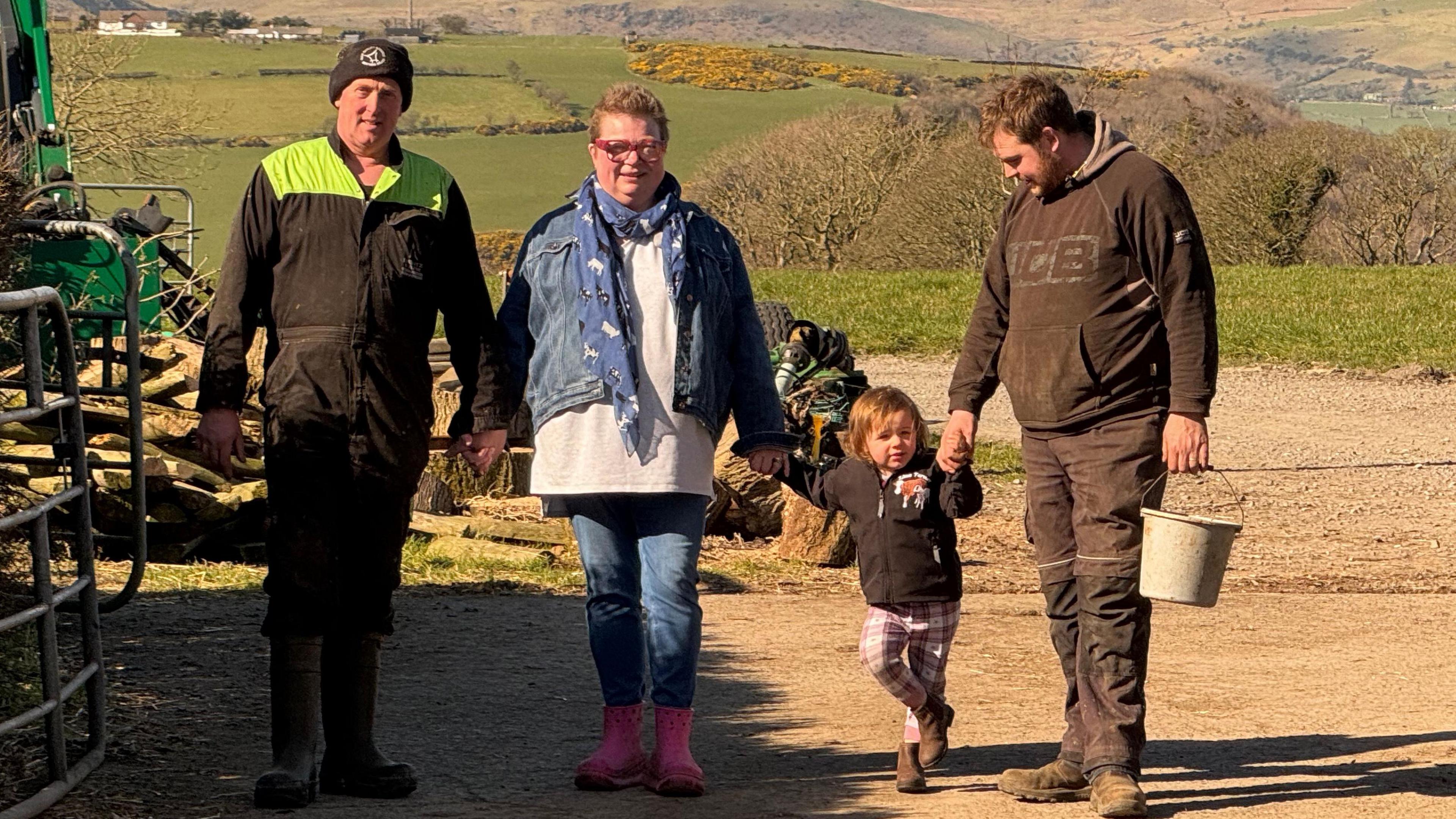
Thomas and Jennifer Dunlop run their family farm along with their son, Andrew, and with help from his daughter Maisie
- Published
"Baby moos" are keeping three-year-old Maisie and her grandmother Jennifer busy on their family's 200-acre farm in County Antrim.
But thoughts of the future are on Jennifer Dunlop's mind.
From April 2026, a 20% inheritance tax rate will apply to agricultural assets over a £1m threshold.
"If this continues, if they carry out what they said in October, I fear for the farming community," said Jennifer.
"I fear for farmers on the ground. I fear for their mental health."
She is not alone.
'Can't really see a future'
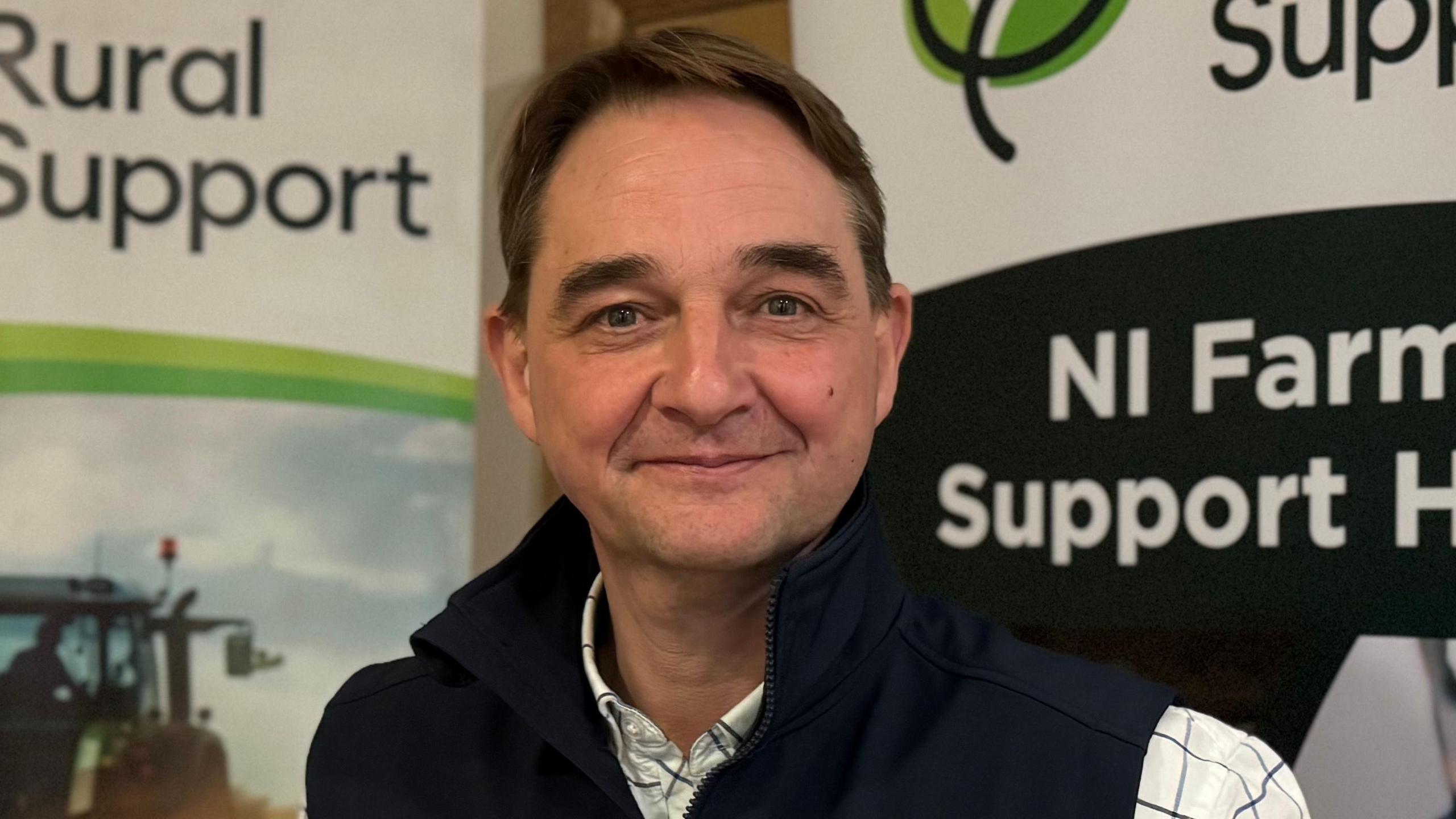
Gyles Dawson from Rural Support says the number of counsellors has increased to match demand
A charity that offers support services to farmers is recruiting more mental health counsellors to meet the increasing demand.
In just six years, the number of counsellors at Rural Support has increased from just two to more than 20, as calls have surged.
Gyles Dawson, the director of programmes, said the capping of tax relief had added to everything farmers were already facing, like financial pressures, animal diseases and the health diagnoses that an ageing population faces.
"The resilience tank already was at a very low ebb and it's taken very little to push a lot of farm businesses mentally and financially over the edge," he said.
"And because of the inheritance tax announcement a lot of people can't really see a future now, is there a future for my son or my daughter in farming?"
Thomas Dunlop has already felt the stress of farming life
Jennifer's husband Thomas has already felt the stress of agricultural life.
"It was 2016, the beginning of June, the weather had been bad and we were trying to get silage done," she said.
"And like a bolt from the blue, Thomas had a really bad mental breakdown."
For the next three months, he could not be left on his own.
Although he is well recovered now, there have been "bumps along the way" and Jennifer is on constant alert for the signs she missed back then.
"I didn't see it coming," she said. "I thought we were never going to get him back, but we did.
"We are a family who love what we do and we love each other, and I am so scared that there are farmers out there that maybe don't have that support network."
'A double-whammy'
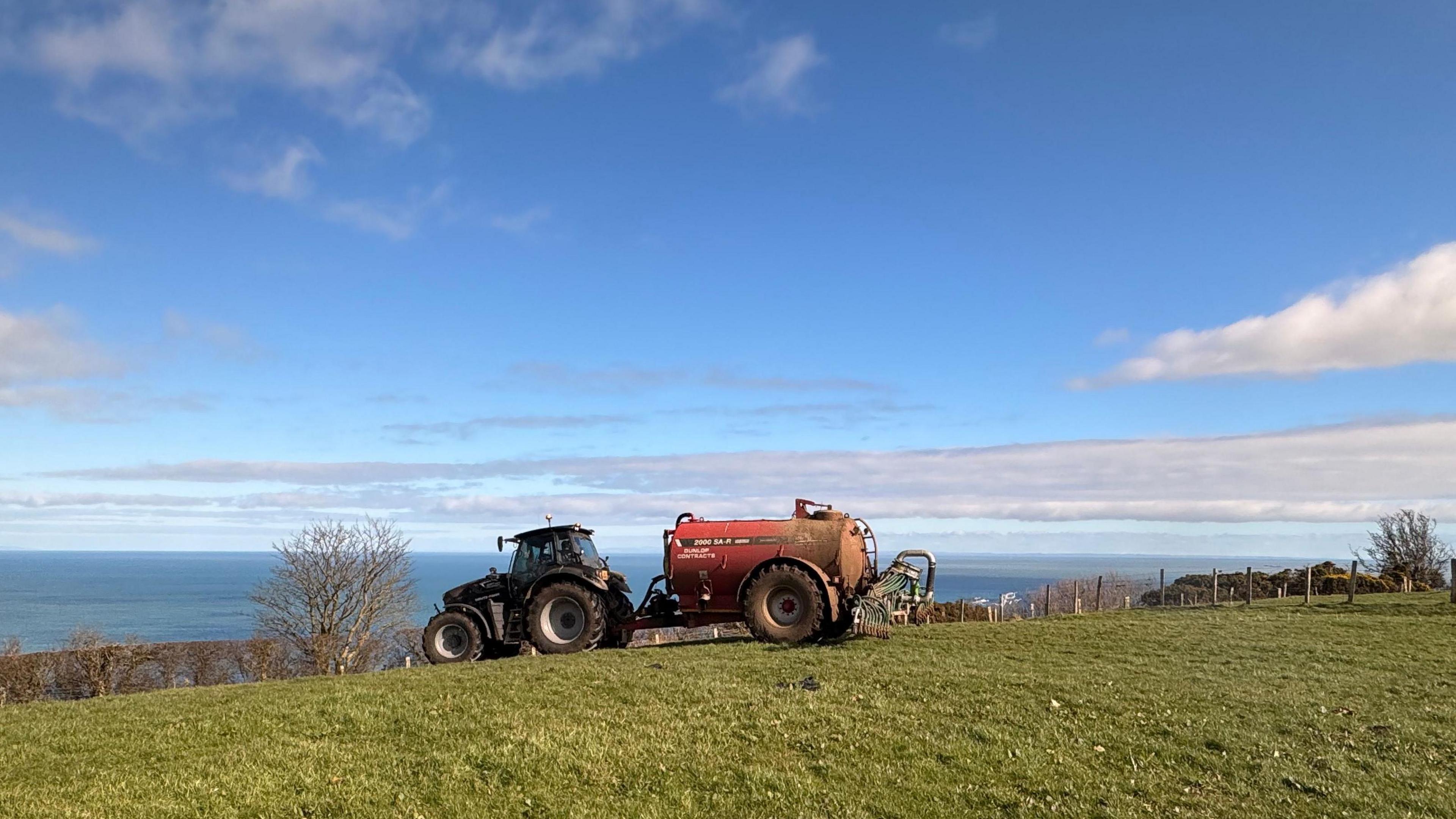
The expensive equipment that farms use will also contribute to the farm's valuation for inheritance tax
The Treasury believes that, with careful financial planning, about 500 estates a year will be liable to pay the tax.
But the Department of Agriculture, Environment and Rural Affairs says its research shows almost half of all farms in Northern Ireland will pass the threshold, external due to land values alone, with the dairy sector particularly badly hit.
The Dunlops are typical of many farming families in Northern Ireland, as they have diversified on the dairy farm that has been in their family for three generations.
Their agricultural contracting business offers baling services and low-emission slurry spreading to their neighbours, but the expensive equipment it requires will also contribute to the farm's valuation for inheritance tax.
"What we've seen is that a lot of people have realised, 'well this affects my farming business'," warned Sean McCann, a chartered financial planner at the agricultural insurer, NFU Mutual.
"But it'll also affect the diversified businesses that are run by many farmers as well, so it's going to have a double-whammy on many of them.
"But that level of diversification, it's significantly higher in Northern Ireland."
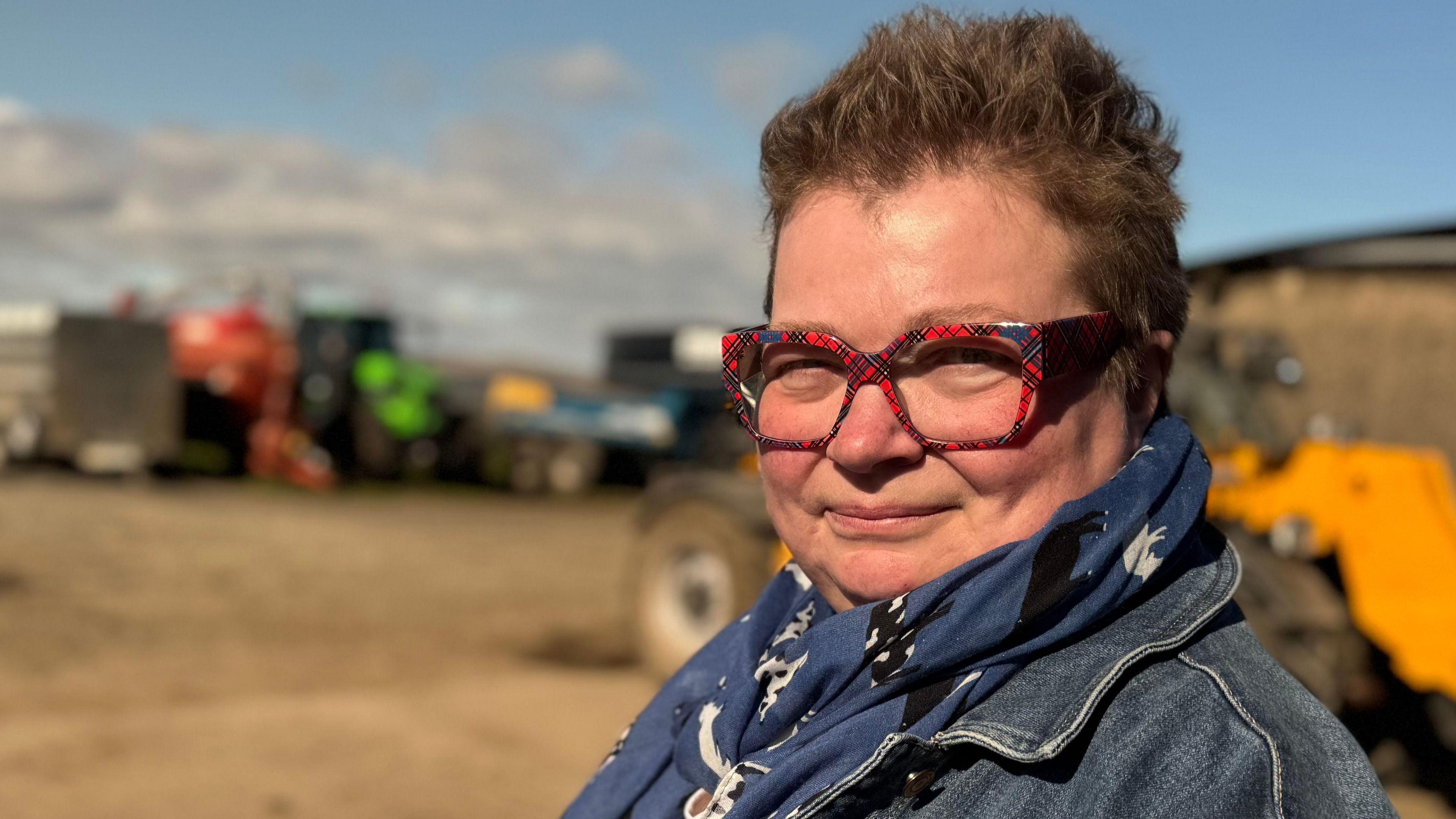
Jennifer Dunlop says agricultural land values are "colossal"
At 200 acres, the Dunlops' farm is already worth about £3m, based just on average agricultural land values in County Antrim before any property, equipment or farm buildings are taken into account.
"Land values here are colossal, they're so much higher," she said.
"Where do we go, what do we do?
"Who's going to want to buy that land in the next generation? Because every farm family's going to be the same."
'It's going to wipe out farmers'
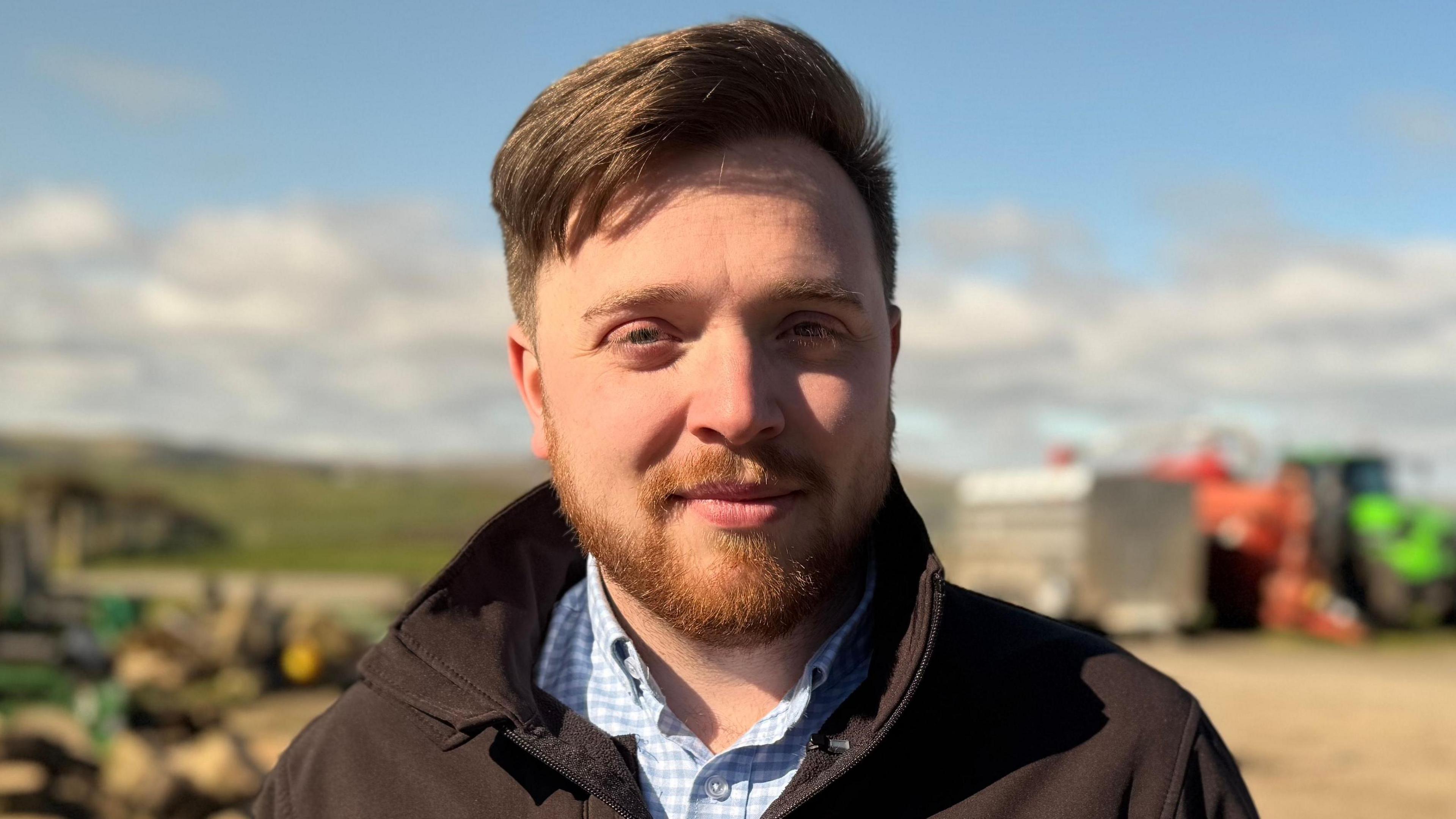
Phillip Dunlop chose a different career path
Jennifer's eldest son, Maisie's father Andrew, already works on the farm and plans to take it over.
But the financial implications are weighing on him and his brother Philip, who chose a different path.
"Me and my brother won't be able to try and find half a million pounds to pay a tax bill," said Philip.
"We can't just turn around to the farmers we do the contracting work for and say, we're putting your bill up, we have to find this - we're going to put 50p on per bale we make or an extra tenner an hour for slurry.
"It's just not feasible because that farmer's not going to be able to pay it."
And he is worried about potential far-reaching implications.
"You have all your fruit and veg shops, all your other local industries - transport, haulage, packaging - that this is going to have a knock-on effect to," he added.
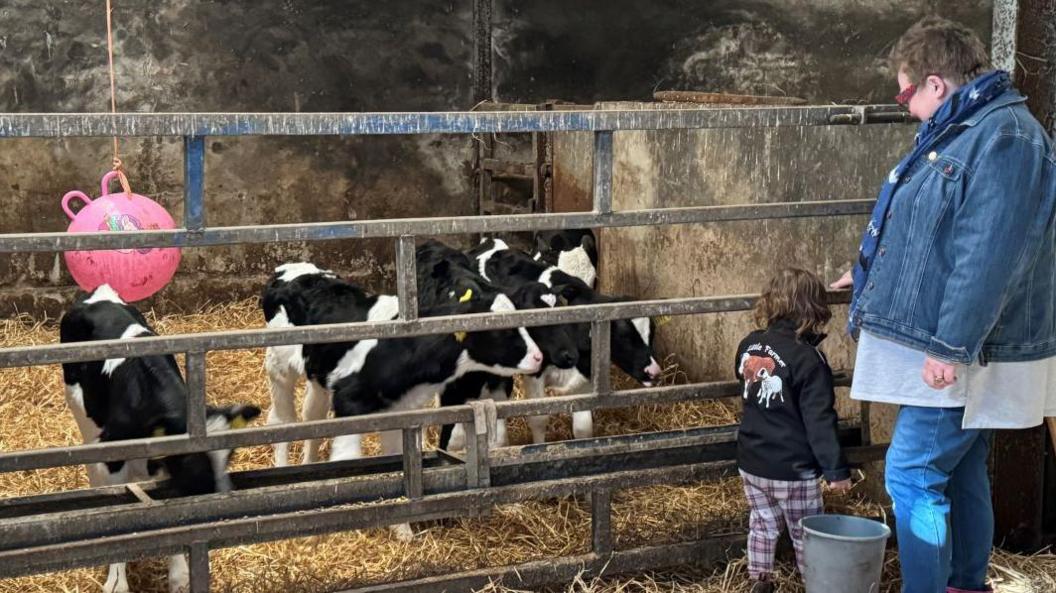
Jennifer's granddaughter Maisie likes to help out with the calves or "baby moos"
For Jennifer, the joy of new life on the farm is tempered by her fears for the future.
"We've calves being born every day, and that is the most amazing feeling in the world," she said.
"Farming is our life, that's all we know.
"This is going to wipe out farms, it's going to wipe out farmers.
"And it is going to wipe out the family farm."
Related topics
Related internet links
- Published24 November 2024
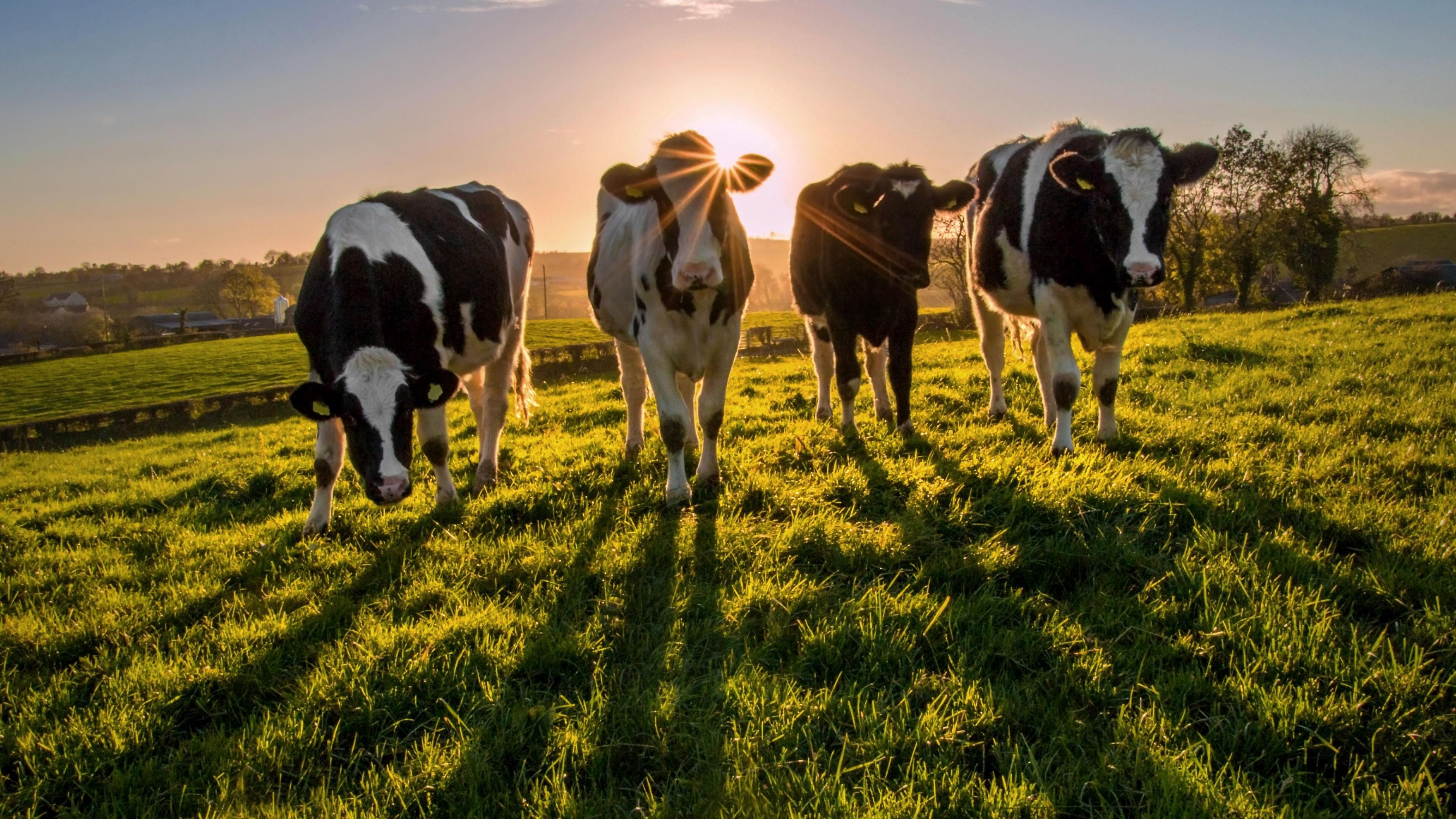
- Published10 December 2024
